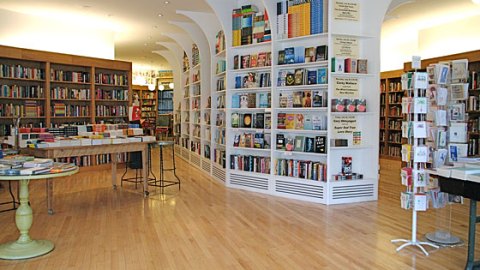A Rebirth for Independent Book Stores?

Independent bookstores were supposed to be dead, succumbing to Amazon, Kindle, and big box chains Barnes Noble and Borders. As early as 1998, Hollywood in You’ve Got Mail was predicting the demise of indies, featuring Tom Hanks as a big box owner targeting Meg Ryan’s childrens bookstore.
Consider that between 1991 and 2009, market share for indies dropped from 31% to 12% and the number of indie stores fell from 5,000 to 2,000.
Yet over the past two years, there are signs of resurgence in popularity–even prosperity– for those independent booksellers that remain. A number of factors account for the rebirth of independent bookstores, one of the topics I will be tracking here at Age of Engagement.
Strategies include the use of social media to strengthen relationships with customers, expanded book events, and new in store cafes and live music. But the desire among consumers to regain a sense of the local–experiencing an indie bookstore as a nexus point for their community and as a social outlet—might be the biggest factor. “I do think there’s a swing back to valuing local and independent,” Booksmith manager Dana Brigham told the Boston Globe. “Small and local can be good places to do business and very healthy for your community.”
Last week, New York magazine spotlighted the emergence of several new independent bookstores in Manhattan. But as NY Mag details, the profit margin for an indie remains very tight. Most successful owners are in the business out of passion and a sense of mission, rather than a desire to make it rich.
Here in Washington, DC, Kramers Books and Politics & Prose, the two longtime independent bookstores in the area, pursue slightly different strategies for engaging costumers.
Kramers thrives on the location and energy of Dupont Circle, featuring a highbrow selection of political non-fiction, history, and literature while attracting browsers from breakfast to late night with a popular adjoining restaurant, café, and bar featuring live music.
Politics & Prose, on the other hand, relies on an unrivaled author series, often broadcast on Book TV, and that attracts dozens of attendees. They also specialize in carefully curated staff selections for customers, a strong monthly print and electronic newsletter, a basement café and a member program that offers bi-annual discounts.
What do readers think? Are you as optimistic about the future of independent bookstores? What factors account for the survival and growth of your favorite local indie? From Portland, Seattle, and Berkeley to Boston, New York, and Washington, DC, which stores are the standard bearers for indie success? What strategies make them successful?





